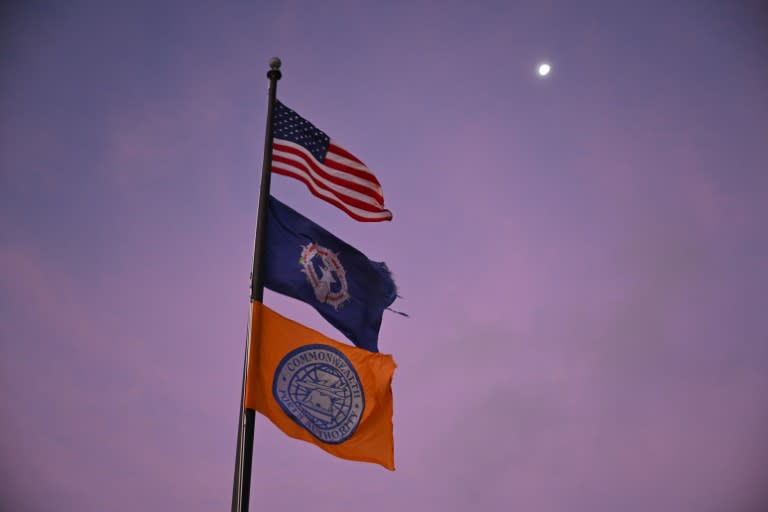Assange in court: Five things about the Northern Mariana Islands

WikiLeaks founder Julian Assange has pleaded guilty at a court in the Northern Mariana Islands in a deal with US authorities expected to leave him a free man.
Here are five things to know about the US territory in the Western Pacific:
- Closer to Australia -
Surrounded by the vast Pacific Ocean, the Northern Mariana Islands is a tiny, remote outpost of the world's largest economy.
Its closest large neighbours are Japan, the Philippines and, most notably in this case, Australia -- Assange's home country, where he will return after the plea deal is completed.
Court documents say the Northern Mariana Islands was chosen "in light of the defendant's opposition to traveling to the continental United States" as well as its "proximity" to Australia.
- US territory -
Assange appeared before a US judge at a court in Saipan -- the archipelago's largest island where 90 percent of its population of 51,000 live, according to the CIA World Factbook.
The 52-year-old pleaded guilty to a single count of conspiracy to obtain and disseminate national defence information.
He is expected to be sentenced to five years and two months in prison, with credit for the same amount of time he spent behind bars in Britain.
People from the Northern Mariana Islands are US citizens but hold different rights to people from the 50 states.
They cannot vote in presidential elections, for example, as is the case in other US territories such as Puerto Rico, Guam and the US Virgin Islands.
- Wartime history -
The archipelago was colonised by Spain in 1668, with war and disease wiping out most of the indigenous population.
The United States won Guam in 1898 after the Spanish-American War but sold the neighbouring Northern Mariana Islands to Germany.
The islands were administered in the early 20th century by Japan, which brought in thousands of labourers and invaded Guam from there in World War II.
The United States captured the territory in 1944 in the Battle of Saipan.
- Tropical destination -
The islands are dependent on energy imports but have a growing tourist industry, especially from China and South Korea, the CIA says.
Holidaymakers come for surfing and scuba diving, or simply to enjoy year-round temperatures of around 29 degrees Celsius (84 degrees Fahrenheit).
It is also close to and shares a name with the Mariana Trench, the deepest known point in the world's oceans, which has long fascinated scientists and explorers.
- Natural disasters -
There are 14 islands in the Northern Mariana Islands chain, which runs roughly north-south for around 600 kilometres (370 miles).
They are dotted with active volcanoes and typhoon season runs from July to January.
The territory was ravaged by Super Typhoon Yutu in 2018, the strongest typhoon ever to hit the Mariana Islands and the second strongest to strike the United States, according to the US government.
kaf/cwl


